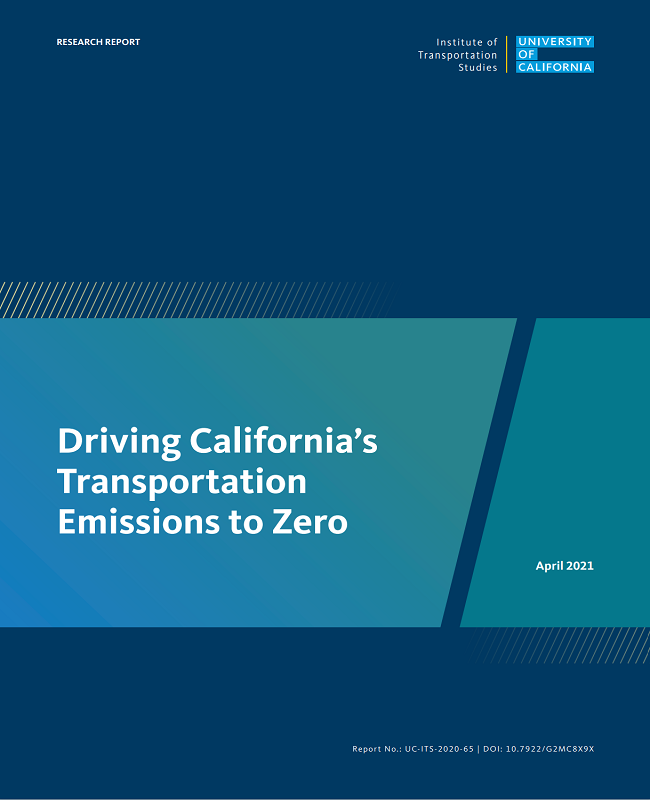Transportation is the largest source of greenhouse gas emissions in California. Decarbonizing that sector is key to achieving the state’s goals of carbon neutrality by 2045. But such a transition is unlikely to happen rapidly without key policy intervention. A team of transportation and policy experts from the University of California released a report today to the California Environmental Protection Agency (CalEPA) outlining policy options to significantly reduce transportation-related fossil fuel demand and emissions. Those policy options, when combined, could lead to a zero-carbon transportation system by 2045, while also improving equity, health, and the economy
The purpose of the report is to provide a research-driven analysis of options that can put California on a pathway to achieve carbon-neutral transportation by 2045. The report comprises thirteen sections. Section 1 provides an overview of the major components of transportation systems and how those components interact. Section 2 discusses the impacts the COVID-19 pandemic has had on transportation. Section 3 discusses California’s current transportation-policy landscape. These three sections were previously published as a synthesis report. Section 4 analyzes the different carbon scenarios, focusing on “business as usual” (BAU) and Low Carbon (LC1). Section 5 provides an overview of key policy mechanisms to utilize in decarbonizing transportation. Section 6 is an analysis of the light-duty vehicle sector, section 7 is the medium- and heavy-duty vehicle sectors, section 8 is reducing and electrifying vehicle miles traveled, and section 9 is an analysis of transportation fuels and their lifecycle. The following sections are an analysis of external costs and benefits: section 10 analyzes the health impacts of decarbonizing transportation, section 11 analyzes equity and environmental justice, and section 12 analyzes workforce and labor impacts. Finally, future research needs are provided in section 13. The study overall finds that cost-effective pathways to carbon-neutral transportation in California exist, but that they will require significant acceleration in a wide variety of policies.
More About this Resource
Date: April 23, 2021
Type: Research Reports
Countries: United States
States: California
